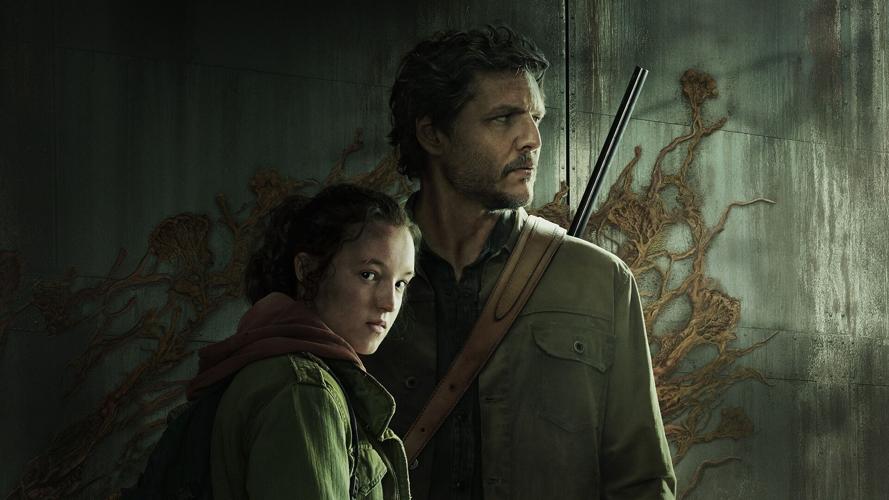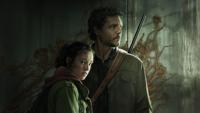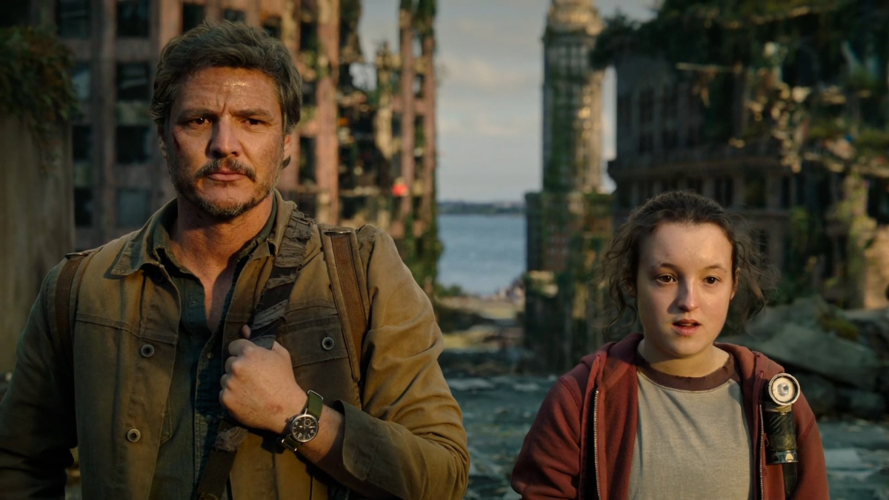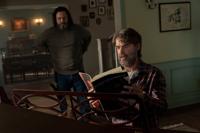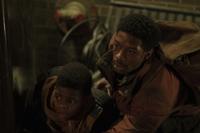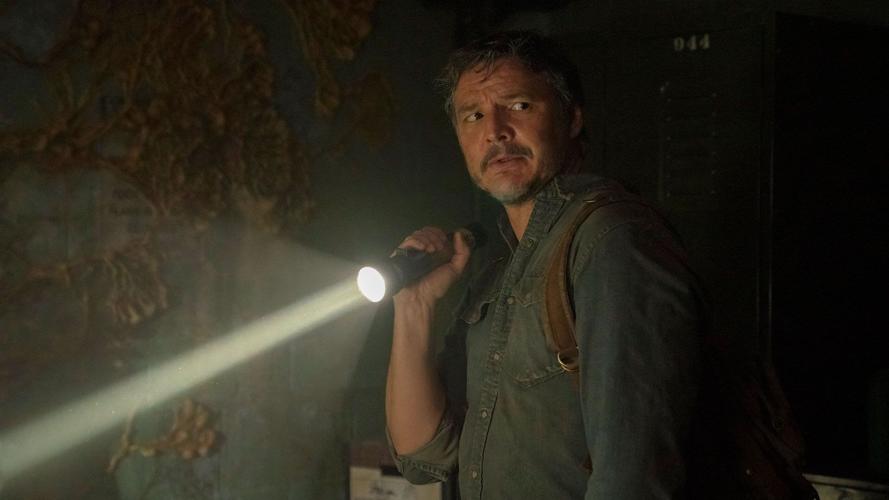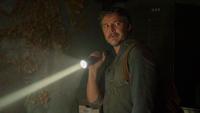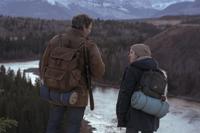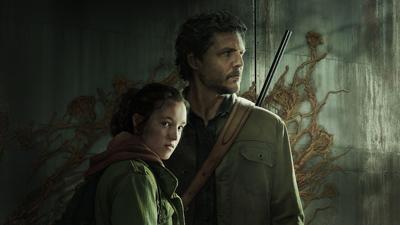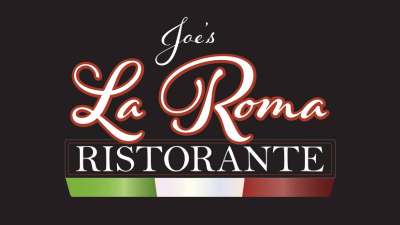The adaptation of the PlayStation video game has become a hit series for HBO. It has made Chilean actor, Pedro Pascal a household name. The nearly 50-year-old performer entered mainstream status with his role in The Mandalorian (2019), but if you want that same show but more edgy and with Pascal's face not covered the whole time, then this show is the one. This is the way.
The series is basically a genre exercise, involving a different form of zombie. After George Romero and eleven seasons of Robert Kirkman's The Walking Dead (2010), there's some familiarity to be found here. Except, it's very, very sparse with its use of its so-called zombies. In fact, the majority of its early episodes go without ever depicting an action sequence, involving zombies. This distinguishes this series from Romero or Kirkman. This can either be a deterrent or an incentive to watch.

It's an incentive for me. Even though the framework is yet another post apocalyptic road trip. It doesn't have the tone or density of something like The Road (2009) or the thrills and excitement of something like Train to Busan (2016). Even if you took away the post apocalyptic elements, it's also yet another dad hero trope or older man protecting young child trope that people like Arnold Schwarzenegger made a career with films like Commando (1985) and Terminator 2: Judgment Day (1991). We've even had recent examples like Midnight Special (2016) and Logan (2017).
Writers Craig Mazin and Neil Druckmann have crafted some intriguing drama within that framework that is very effective. Granted, a lot of it has been lifted very faithfully from the video game in a veritable copy and paste situation. Yet, the filmmaking has been very on point and the performances from Pascal and Bella Ramsey (Game of Thrones) are phenomenal and certainly Emmy worthy. Pascal plays Joel, a middle-aged smuggler, surviving in the decades long wake of a fungus outbreak that turns people into zombies. Ramsey plays Ellie, the 14-year-old orphan who is immune to the fungus and is hoped to be used to find a cure. They're bonded because Ellie lost her parents and Joel lost his child.

Strangely though, the episodes that have been the most outstanding have been the episodes where Joel and Ellie haven't been the focus. The series has taken diversions to spotlight other characters, characters who don't really go beyond more than one episode, maybe two, but who become more memorable than Joel and Ellie.
The most memorable have been the characters introduced and then ultimately dispatched in Episode 3 called "Long, Long Time." What was so effective in the opening sequence of Pixar's Up (2009) is rendered for a same-sex male couple. Nick Offerman (Parks and Recreation) plays Bill, a possibly right-wing survivalist who fortifies his neighborhood and revels in his isolation. Murray Bartlett (The White Lotus) plays Frank, a more liberal guy, not as paranoid as Bill or as cynical. Frank might be a bit more cultured but is able to bond with Bill over a love of music.

Yes, there is plenty of LGBTQ+ representation on television, and there have been plenty of depictions of same-sex male couples. It's been rare to get it as the forefront of a genre piece. It's also been rare for that relationship to be between two people over the age of 50. The exception has been Grace and Frankie (2015), but that was a comedy not a drama.
In Episode 5, we get the characters of Henry and Sam, two young Black boys, trying to hide in Kansas City from revolutionaries who have taken over the city. The revolutionaries want to kill Henry and possibly his younger brother Sam. Henry, played by Lamar Johnson (Brother and Your Honor), proves himself a terrific, young actor who learned ASL because Keivonn Montreal Woodard who plays Sam is deaf and communicates through sign language. Their story line is a knockout.

As this series progresses, the episodes featuring these tangential characters will be the true takeaway. It's a Catch-22 or a double-edge sword. The show's utilization of these characters are very effective and indeed powerful, but the brief existence of each of them in terms of the number of episodes in which they'll appear feels problematic. It's almost like the appetizers are better than the meal.
Without spoiling, the final episode in this first season involves what I would call a reverse of the ending of M. Night Shyamalan's Knock at the Cabin (2023). It's funny because when Episode 3 first aired, people were comparing it to Knock at the Cabin. Those people perhaps had played the game and knew where all of this was ultimately going, but having not played the game, I see now that those comparisons were very appropriate as the ending to that Shyamalan film involves the main character making a choice with options that are practically the same as what Joel faces.

Finally, I understand that this narrative was originally written for the video game long before the COVID-19 pandemic, but some things depicted in this series feed into a very right-wing ideology of how the government behaves during crises like this. During the pandemic, particularly after President Joe Biden took office, many on the political right accused Biden's administration of being fascist or authoritarian with regard to things like mask mandates or vaccine requirements. This series literalizes those right-wing accusations to ridiculous degrees.
Rated TV-MA.
Running Time: 1 hr.
Sundays at 9 PM on HBO.
Available on HBO Max.

